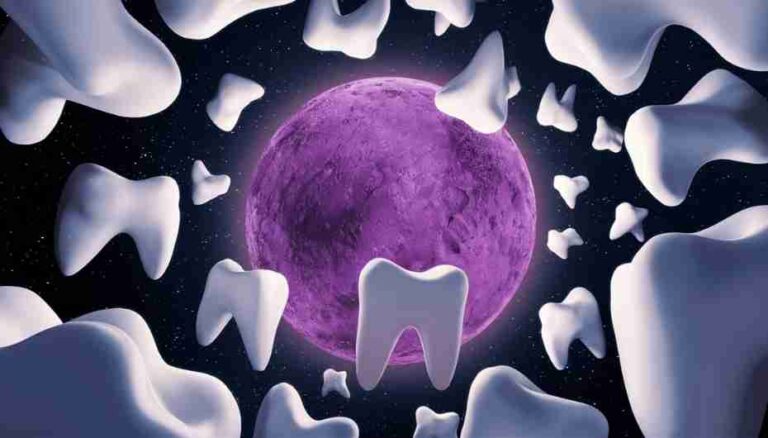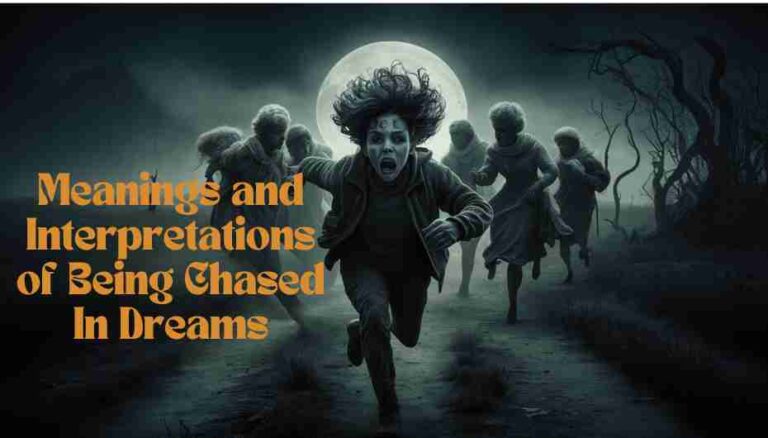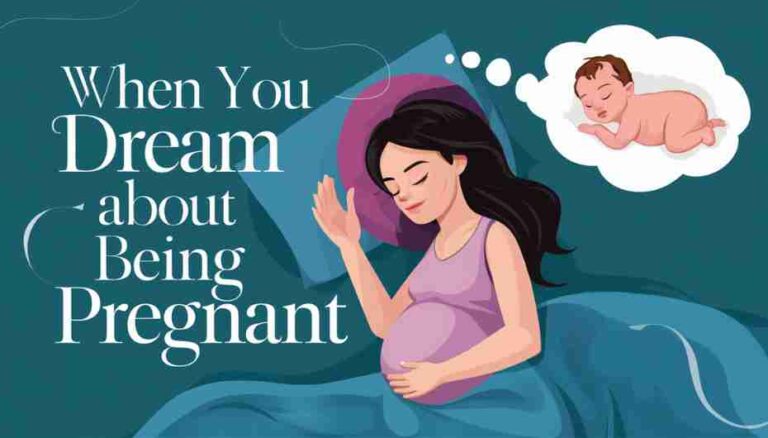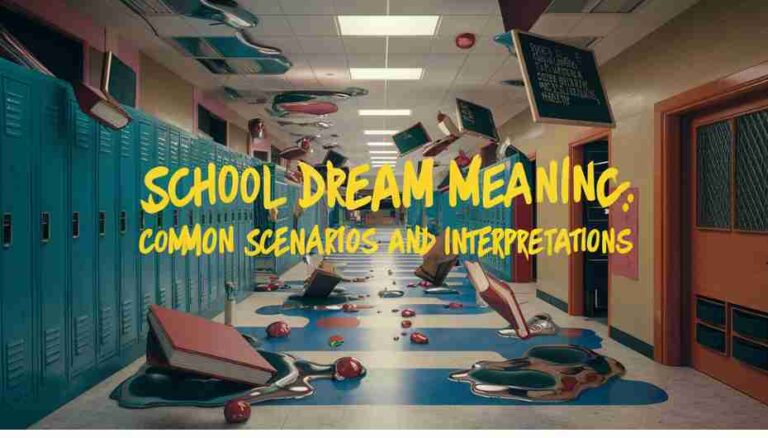Death Dreams Meaning: Common Scenarios and Interpretations
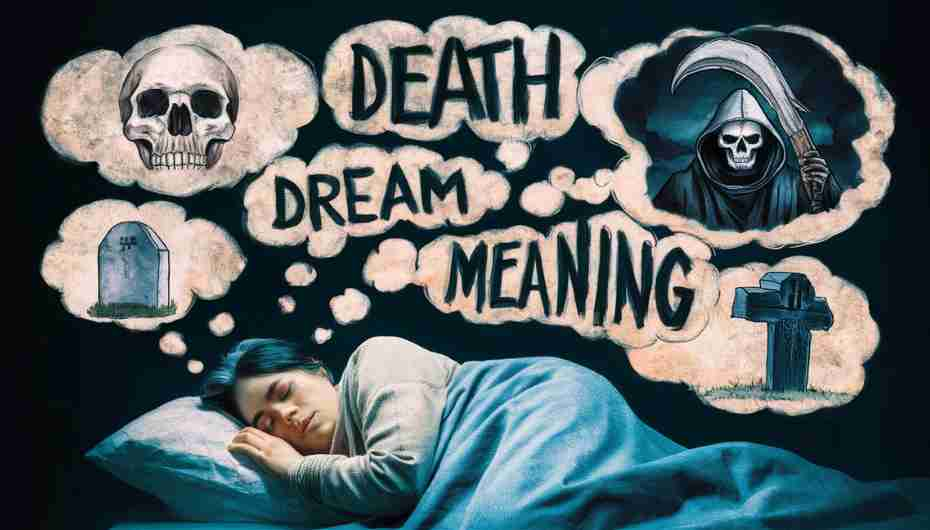
Dreaming about death can be a deeply unsettling experience, leaving you feeling anxious, confused, or even frightened upon waking. However, it’s important to remember that death dreams are not necessarily a bad omen or a sign of impending doom. In fact, dreams about death often carry symbolic meanings and can provide valuable insights into your emotional state, personal growth, and life transitions.
Types of Death Dreams and Their Interpretations
Death dreams can take many forms, each with its own unique symbolism and meaning. Here are some of the most common types of death dreams and their interpretations:
Dreams About Your Own Death
Dreaming about your own death can be a startling experience, but it doesn’t necessarily mean that you’re in danger. Instead, these dreams often represent a period of transition or transformation in your life. They may reflect your fears about change or loss, or symbolize the need to let go of something that no longer serves you.
For example, if you dream about dying in a car accident, it may suggest that you’re feeling overwhelmed or out of control in some aspect of your life. Alternatively, if you dream about dying peacefully in your sleep, it may indicate that you’re ready to let go of the past and embrace a new chapter in your life.
Dreams About Someone Else Dying
Dreaming about someone else’s death can be just as unsettling as dreaming about your own. These dreams may express your grief and loss, especially if you’ve recently experienced the death of a loved one. They may also represent your fears about losing someone or something important to you, or reflect your concerns about the well-being of others.
For instance, if you dream about a family member dying, it may suggest that you’re worried about their health or safety. If you dream about a friend or colleague dying, it may indicate that you’re concerned about the state of your relationship or the stability of your work environment.
Dreams About the Deceased
If you dream about someone who has already passed away, it may be a way of processing your unresolved emotions and grief. These dreams can provide a sense of closure and comfort, allowing you to say goodbye or receive messages and guidance from the deceased.
For example, if you dream about a deceased loved one visiting you and offering words of wisdom or encouragement, it may be a sign that you’re on the right path and that they’re watching over you. If you dream about a deceased loved one in distress or pain, it may suggest that you’re still grappling with the trauma of their loss and need to seek support or healing.
Dreams About Attending a Funeral
Dreaming about attending a funeral may represent the end of a situation or relationship in your life. It could reflect your need for closure or acceptance, as you come to terms with the fact that something has concluded. These dreams might also symbolize the mourning process you’re going through as you cope with a loss or significant change in your life.
For example, dreaming about attending the funeral of a former partner could signify that you’re finally ready to move on from the relationship and embrace a new chapter. Similarly, dreaming about attending a funeral for a deceased family member might indicate that you’re working through your grief and coming to terms with their passing.
Dreams About Witnessing a Death
Dreams in which you witness a death can be particularly unsettling. They may reflect feelings of helplessness or guilt, as if you were unable to prevent the tragedy from occurring. These dreams could also represent a fear of losing control or being powerless in a situation. Additionally, they might symbolize the need to confront and process difficult emotions that you’ve been avoiding.
For instance, dreaming about witnessing a fatal accident could suggest that you feel helpless or guilty about a situation in your waking life that you believe you could have handled differently. It might also indicate that you need to face and work through challenging emotions related to that event.
Dreams About Causing a Death
Dreaming about causing someone’s death can be a disturbing experience, but it’s important to remember that having such dreams doesn’t mean you actually wish to harm anyone. These dreams may reflect intense feelings of anger, resentment, or frustration you harbor towards someone in your waking life. They could also represent a desire to end a problematic situation or relationship that’s causing you distress. In some cases, these dreams might symbolize the need to take responsibility for your actions and consider the consequences of your choices.
For example, dreaming about causing the death of a coworker might indicate that you’re feeling extremely frustrated or resentful towards them, and you wish to end the negative dynamics between you. It could also be a sign that you need to take responsibility for your role in the conflict and find a way to resolve the issue.
Dreams About Resurrection or Coming Back to Life
Dreams about resurrection or coming back to life often represent a sense of hope, renewal, or second chances. They may reflect your desire for transformation or a new beginning in some aspect of your life. These dreams could also symbolize the need to confront and overcome fears or obstacles that have been holding you back.
For instance, dreaming about a loved one being resurrected might signify your hope for a renewed relationship or a second chance to make things right. Similarly, dreaming about your own resurrection could indicate that you’re ready to embark on a new path and overcome the challenges that have been hindering your growth.
Dreams About Death and Rebirth
Dreams that feature themes of death and rebirth can be powerful and transformative. They often represent the cyclical nature of life and the idea that endings are necessary for new beginnings to emerge. These dreams may reflect a sense of spiritual awakening or a deepening understanding of life’s mysteries. They could also symbolize the need to let go of the past, release outdated beliefs or patterns, and embrace change and growth.
For example, dreaming about dying and being reborn as a different person might suggest that you’re undergoing a profound inner transformation and shedding old aspects of yourself that no longer serve you. It could be a sign that you’re ready to embrace a new phase of your life with openness and courage.
Dreams About Being Killed
Dreaming about being killed can be a frightening and disturbing experience. These dreams may reflect feelings of being overwhelmed or powerless in a situation, a sense of betrayal or vulnerability, or a need for self-preservation and protection.
For example, if you dream about being murdered by a stranger, it may suggest that you’re feeling threatened or unsafe in some aspect of your life. If you dream about being killed by someone you know, it may indicate that you’re feeling betrayed or hurt by their actions or words.
Psychological Perspectives on Death Dreams
Psychologists have long been interested in the meaning and significance of death dreams. Here are some of the most prominent psychological perspectives on death dreams:
- Jungian interpretation: According to Carl Jung, death in dreams is often a symbol of transformation and rebirth. He believed that death dreams could represent the end of one phase of life and the beginning of another, or the need to let go of old patterns and behaviors in order to grow and evolve.
- Freudian interpretation: Sigmund Freud, on the other hand, saw death dreams as a manifestation of repressed fears and desires. He believed that death dreams could represent a wish for the death of someone who is causing us distress or a fear of our own mortality.
- Cognitive-behavioral perspective: From a cognitive-behavioral perspective, death dreams may be a way of processing and coping with anxiety and stress. These dreams may help us to confront and work through our fears and concerns in a safe and controlled environment.
Cultural and Spiritual Interpretations of Death Dreams
In addition to psychological perspectives, there are also many cultural and spiritual interpretations of death dreams. These interpretations vary widely depending on the specific culture and tradition, but some common themes include:
- Various cultural beliefs and traditions surrounding death and dreams: In some cultures, death dreams are seen as a sign of impending doom or a warning of future events. In others, they are viewed as a message from the spirit world or a way of communicating with ancestors.
- The role of death dreams in spiritual growth and awakening: Some spiritual traditions view death dreams as an opportunity for spiritual growth and awakening. These dreams may be seen as a way of confronting our own mortality and the impermanence of life, and of developing a deeper understanding of the nature of reality.
- The significance of death dreams in near-death experiences: Near-death experiences (NDEs) are often accompanied by vivid and powerful dreams, including dreams about death and the afterlife. These dreams may be seen as a glimpse into the mysteries of life and death, and as a way of preparing for the transition from one state of being to another.
| Cultural/Spiritual Tradition | Interpretation of Death Dreams |
|---|---|
| Some Native American cultures | Death dreams are a sign of impending doom or a warning of future events |
| Tibetan Buddhism | Death dreams are an opportunity for spiritual growth and awakening, and a way of preparing for the transition from one state of being to another |
| Ancient Egyptian culture | Death dreams were seen as a way of communicating with the gods and the spirit world |
Factors That May Influence Death Dreams
There are many factors that can influence the content and frequency of death dreams. Some of the most common include:
- Grief and loss: If you’ve recently experienced the death of a loved one, you may be more likely to have dreams about death as a way of processing your grief and loss.
- Stress and anxiety: Death dreams may be more common during times of high stress or anxiety, as a way of coping with feelings of uncertainty or fear.
- Major life transitions and changes: If you’re going through a significant life transition, such as starting a new job, moving to a new city, or ending a relationship, you may be more likely to have death dreams as a way of processing the change and uncertainty.
- Exposure to death-related content: If you’ve recently watched a movie or read a book that deals with death or violence, it may influence the content of your dreams.
- Personal beliefs and attitudes towards death: Your personal beliefs and attitudes towards death can also play a role in the frequency and content of your death dreams. If you have a fear of death or a strong belief in an afterlife, for example, it may be reflected in your dreams.
Related Posts:
Water Dream Meaning: Common Scenarios and Interpretations
Celebrity Dream Meaning: Common Scenarios and Interpretations
What Does It Mean When You Dream About Being Pregnant?
House Dream Meaning: Common Scenarios and Interpretations
Animal Dreams Meanings and Interpretations
Apocalyptic Dream Meaning: 13 Common Scenarios and Interpretations
Transforming Death Dreams into Opportunities for Personal Growth
While death dreams can be unsettling, they can also be powerful opportunities for personal growth and transformation. Here are some ways to transform death dreams into positive experiences:
- Using death dreams as a catalyst for self-reflection and introspection: Take some time to reflect on the content and emotions of your death dreams. What might they be telling you about your current state of mind or the challenges you’re facing in your life?
- Embracing the lessons and insights gained from death dreams to make positive changes in one’s life: If your death dreams are highlighting areas of your life that need attention or change, use this as an opportunity to make positive changes and move forward in a new direction.
- Exploring creative outlets as a means of processing and expressing the emotions and symbolism in death dreams: Consider using art, writing, music, or other creative outlets as a way of processing and expressing the emotions and symbolism in your death dreams.
- Developing a growth mindset and viewing death dreams as opportunities for personal development and transformation: Instead of viewing death dreams as negative or frightening experiences, try to approach them with a growth mindset. See them as opportunities for personal development and transformation, and use them as a tool for self-discovery and growth.
- Cultivating resilience and adaptability in the face of life’s challenges and transitions: Death dreams can be a reminder of the impermanence of life and the importance of cultivating resilience and adaptability in the face of change and uncertainty.
| Opportunity for Growth | Description |
|---|---|
| Self-reflection and introspection | Using death dreams as a catalyst for examining your current state of mind and life challenges |
| Making positive changes | Applying insights from death dreams to make necessary changes and move forward in a new direction |
| Creative expression | Processing and expressing the emotions and symbolism of death dreams through art, writing, music, or other creative outlets |
| Developing a growth mindset | Viewing death dreams as opportunities for personal development and transformation, rather than as negative experiences |
| Cultivating resilience and adaptability | Using death dreams as a reminder to build resilience and adaptability in the face of life’s transitions and uncertainties |
By approaching death dreams with a growth-oriented perspective and utilizing them for self-reflection, positive change, creative expression, and the development of resilience, you can transform these unsettling experiences into valuable opportunities for personal growth and transformation.
Practical Tips for Interpreting and Coping with Death Dreams
If you’re experiencing death dreams and want to gain a deeper understanding of their meaning and significance, here are some practical tips to help you interpret and cope with these dreams:
- Keeping a dream journal to track patterns and themes: Start a dream journal and record your death dreams as soon as you wake up. Write down as many details as you can remember, including the setting, characters, emotions, and any symbols or themes that stand out to you. Over time, you may start to notice patterns or recurring themes in your dreams that can provide insight into their meaning.
- Exploring the emotions and symbolism in your dreams: Take some time to reflect on the emotions and symbolism in your death dreams. What feelings do these dreams evoke in you? What might the various symbols or characters represent in your waking life? By exploring the emotions and symbolism in your dreams, you can gain a deeper understanding of their significance and how they relate to your current experiences and challenges.
- Seeking support from loved ones or professionals: If you’re struggling to make sense of your death dreams or find them particularly distressing, don’t hesitate to reach out for support. Talk to a trusted friend, family member, or mental health professional about your dreams and how they’re affecting you. They may be able to offer a different perspective or provide guidance on how to cope with the emotions and challenges that your dreams are bringing up.
- Engaging in self-reflection and personal growth: Use your death dreams as an opportunity for self-reflection and personal growth. Take some time to think about what your dreams might be telling you about your current state of mind, your relationships, or your life path. Are there any areas of your life that need attention or change? How can you use the insights gained from your dreams to make positive changes and move forward in a new direction?
- Practicing relaxation techniques and stress management: If stress and anxiety are contributing to your death dreams, practicing relaxation techniques and stress management can be helpful. Try deep breathing exercises, meditation, yoga, or other activities that promote relaxation and reduce stress. Taking care of your physical and emotional well-being can help reduce the frequency and intensity of disturbing dreams.
Frequently Asked Questions
Are death dreams a bad omen or a sign of impending doom?
No, death dreams are not necessarily a bad omen or a sign of impending doom. While they can be unsettling, death dreams are often symbolic and can represent a variety of things, such as the end of a phase in your life, a need for change or transformation, or a way of processing grief and loss.
Can death dreams predict the future?
There is no scientific evidence to suggest that death dreams can predict the future. While some people believe that dreams can provide insight into future events, most experts agree that dreams are a reflection of our own thoughts, feelings, and experiences, rather than a glimpse into the future.
What should I do if I have recurring death dreams?
If you’re having recurring death dreams, it’s important to take some time to reflect on what these dreams might be telling you. Keep a dream journal and look for patterns or themes in your dreams. If the dreams are particularly distressing or interfering with your daily life, consider seeking support from a mental health professional who can help you work through the underlying issues and develop coping strategies.
When should I seek professional help for my death dreams?
If your death dreams are causing significant distress or anxiety, or if they’re interfering with your daily life and relationships, it may be time to seek professional help. A mental health professional can help you explore the underlying issues that may be contributing to your dreams and develop strategies for coping with the emotions and challenges they bring up. They can also provide a safe and supportive space to process any grief, trauma, or other difficult experiences that may be related to your dreams.
Sources:
9 Common Dreams About Death : Dream Interpretation – Psychology Today
Content Analysis of an Anomalous Memorate Collection: Testing Hypotheses Regarding Universal Features – Semantic Scholar
Dreams About Death and Dying: What They Mean & Symbolize – Exemplore
Dreams About Death: Meaning, Interpretation & More – mindbodygreen
In Search of Mythopoetic Thought – Semantic Scholar
Religion is nonsense – Semantic Scholar
Sleep-Induced Changes in Associative Memory – PubMed
What Do Dreams About Death Mean? 7 Common Interpretations – HuffPost
What does it mean when you dream about death? – Medical News Today
What Does Dreaming About Death Mean? 11 Dream Interpretations – Bustle
What Does It Mean When You Dream About Someone Dying? – Healthline


